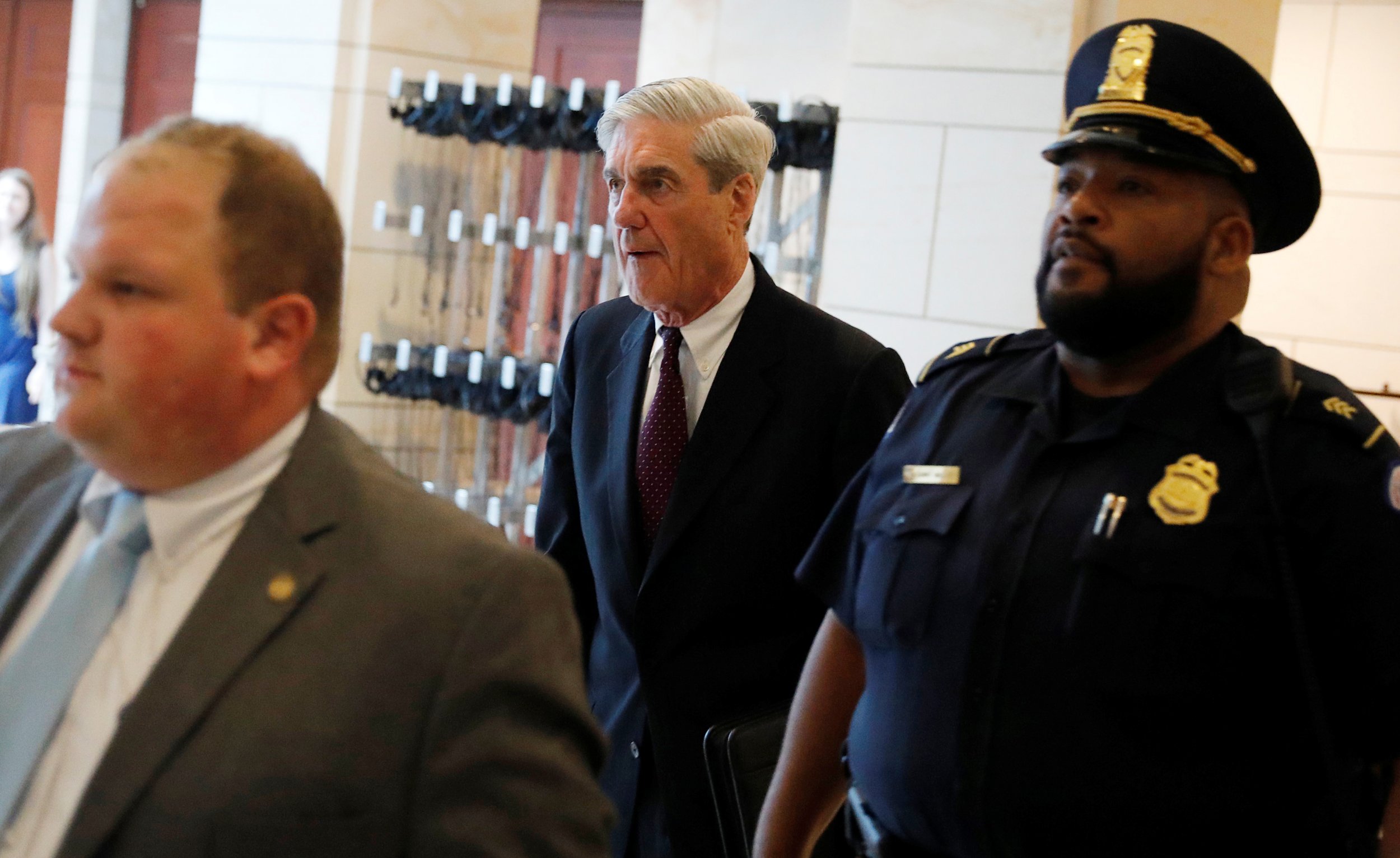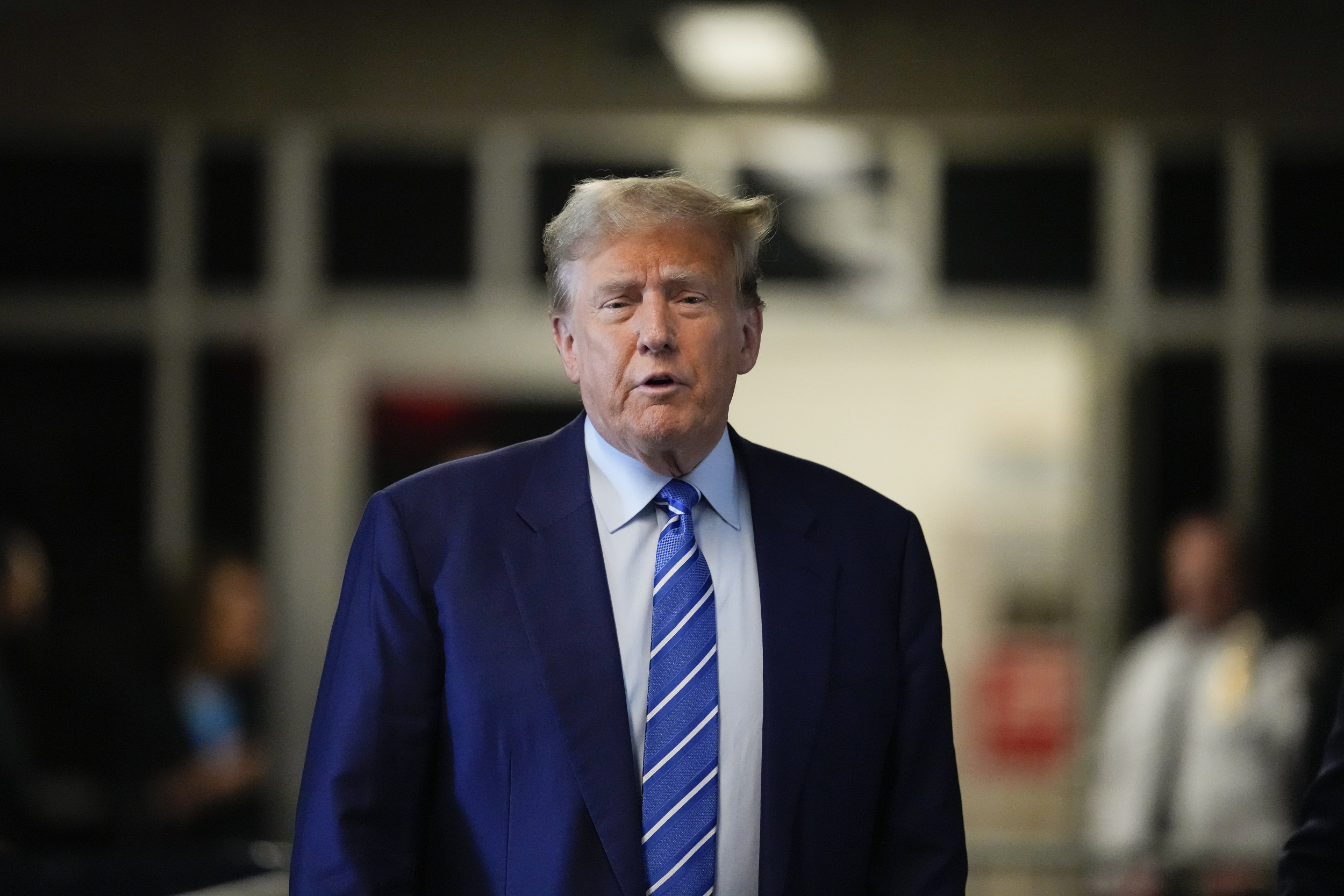
Updated | New bipartisan legislation seeks to protect the Russia investigation's special counsel Robert Mueller from being fired by President Donald Trump.
"If the special counsel is removed, the legislation allows the special counsel to challenge the removal in court," wrote Michigan Democratic Representative John Conyers Jr. of the new bill he introduced in the House Thursday.
Conyers is proposing the legislation with Republican Representative Walter Jones of North Carolina, and they intend it to be a companion to a bipartisan bill the Senate launched in August to bar the president from firing any special counsel. The laws would be retroactive to Mueller's appointment in May.
Mueller is conducting an investigation into the Trump campaign and whether it helped Russia interfere in the 2016 election. He was appointed to lead the investigation on May 17 after Trump fired FBI Director James Comey.
Trump said in an interview with NBC News shortly after he fired Comey that the FBI director was removed because of the Russia investigation.
In personal unclassified memos that Comey said he leaked to The New York Times, the former FBI director documented several private meetings and conversations with Trump where he said the president repeatedly urged him to drop a strand of his investigation looking at fired national security adviser Michael Flynn.
Related: Mueller is "going for the kill" on Trump-Russia investigation, Republicans believe: report
On Wednesday, White House press secretary Sarah Huckabee Sanders doubled down on claims she made earlier this week that Comey's leaked memos broke the law.
"The Department of Justice has to look into any allegations of whether or not something's illegal or not," she said, accusing Comey of "leaking of information, questionable statements under oath, politicizing investigation." Sanders said, "Those are real reasons for why he was fired."
At the end of August, The Wall Street Journal reported Trump's lawyers met personally with Mueller and laid out a case defending the president against accusations of obstruction of justice for firing Comey.
"A special counsel should never have been appointed in this case," Trump told The New York Times during an interview in July in which he warned Mueller's investigation would cross a red line if it began investigating the family's finances. A day later, it was revealed that Mueller is investigating Trump's finances.
A special counsel works independently of government departments, and Mueller has hired top attorneys with expertise in transnational crime and money laundering to investigate the Trump campaign. The White House has looked for ways to discredit Mueller's team, casting them as Democrats on a political "witch hunt."
Under current Department of Justice rules, a special counsel can be removed by the president under accusations of misconduct, dereliction of duty, incapacity, conflict of interest or other good cause, like a violation of departmental policies.
Trump continues to suggest that Mueller has a conflict of interest because he was interviewed for Comey's job just days before he was appointed special counsel.
On Thursday, Conyers and the leading Republican on the House Judiciary Committee, Chairman Bob Goodlatte, met with Mueller.
The new House bill would turn the Justice Department rules into law and allow the special counsels to challenge their removal in court by a panel of three judges. It would also force any dismissal of the special counsel to be carried out by the attorney general or second in line in the Justice Department.
"In the event that the panel of judges finds there was no good cause for the removal," the bill says, "the individual would be immediately reinstated as special counsel."
This story was updated to clarify that the new bipartisan legislation is not a law.
Uncommon Knowledge
Newsweek is committed to challenging conventional wisdom and finding connections in the search for common ground.
Newsweek is committed to challenging conventional wisdom and finding connections in the search for common ground.
About the writer
Graham Lanktree covers U.S. politics for Newsweek. He is based in London and frequently appears as a contributor on BBC ... Read more
To read how Newsweek uses AI as a newsroom tool, Click here.








